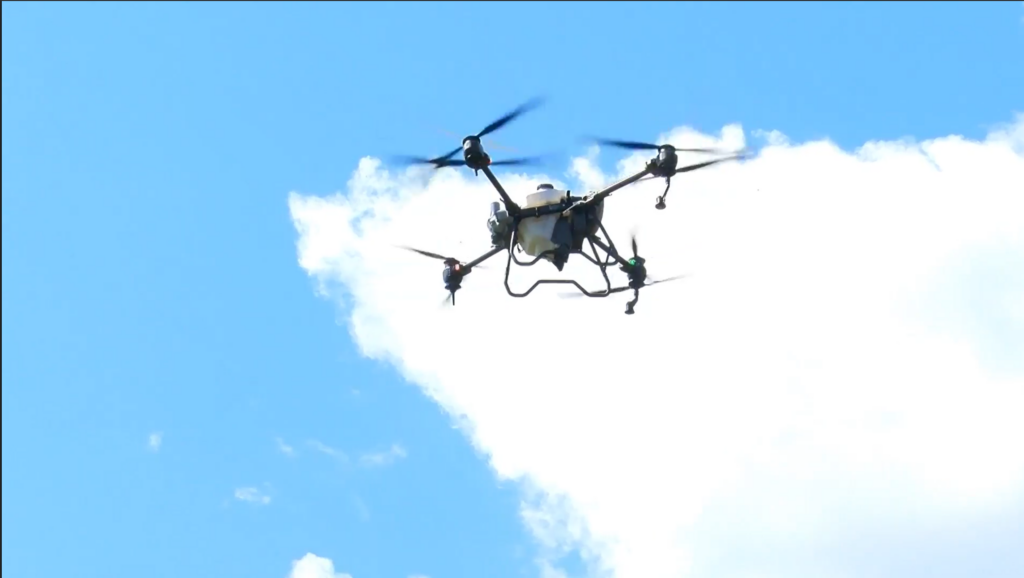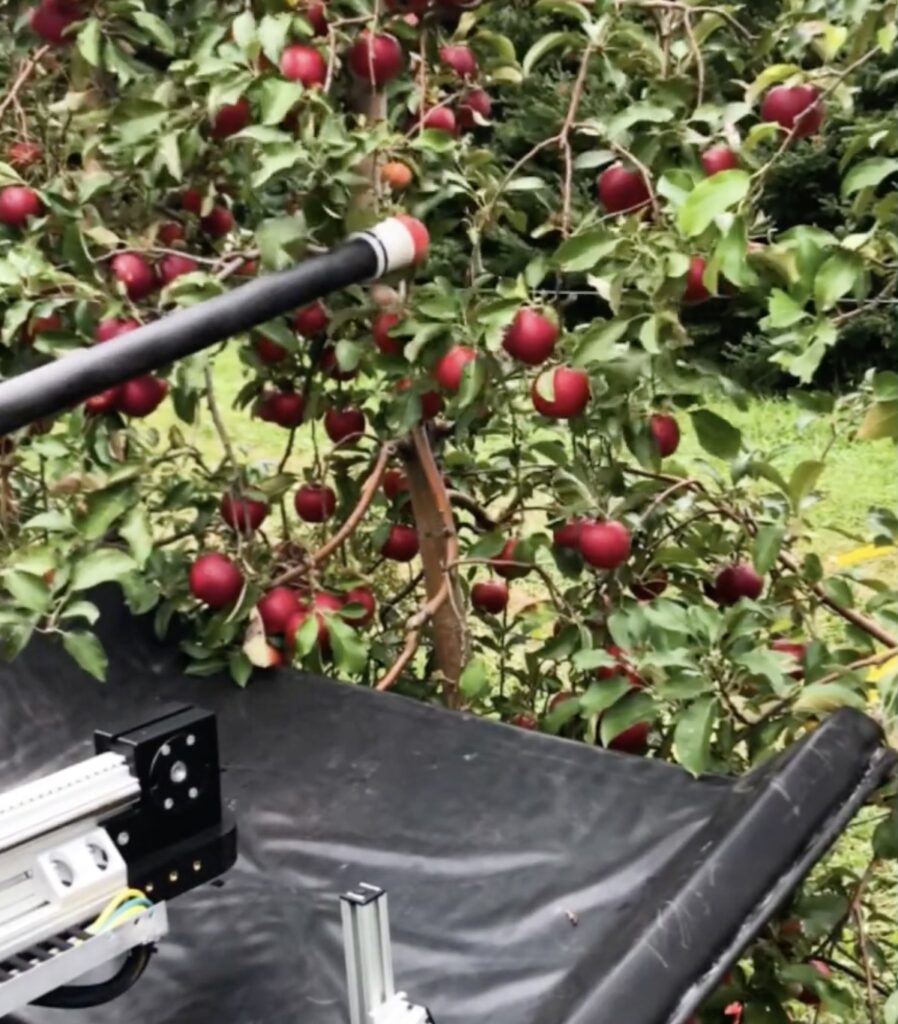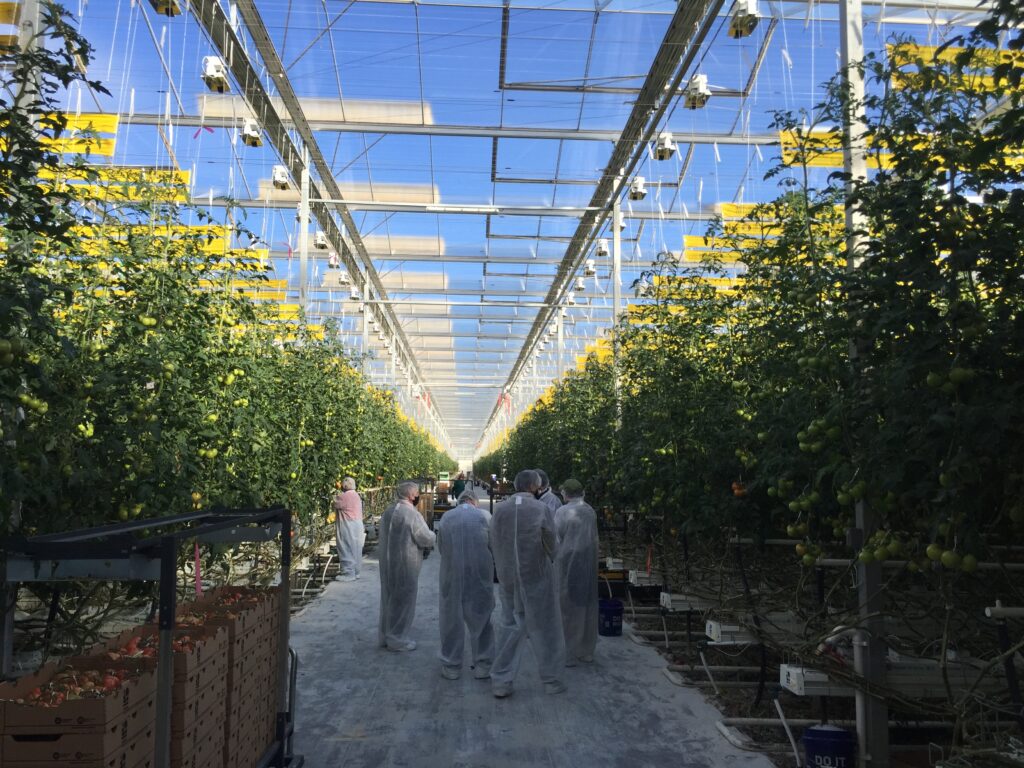How AI Might Be Used in Farming and Horticulture
go.ncsu.edu/readext?1047144
en Español / em Português
El inglés es el idioma de control de esta página. En la medida en que haya algún conflicto entre la traducción al inglés y la traducción, el inglés prevalece.
Al hacer clic en el enlace de traducción se activa un servicio de traducción gratuito para convertir la página al español. Al igual que con cualquier traducción por Internet, la conversión no es sensible al contexto y puede que no traduzca el texto en su significado original. NC State Extension no garantiza la exactitud del texto traducido. Por favor, tenga en cuenta que algunas aplicaciones y/o servicios pueden no funcionar como se espera cuando se traducen.
Português
Inglês é o idioma de controle desta página. Na medida que haja algum conflito entre o texto original em Inglês e a tradução, o Inglês prevalece.
Ao clicar no link de tradução, um serviço gratuito de tradução será ativado para converter a página para o Português. Como em qualquer tradução pela internet, a conversão não é sensivel ao contexto e pode não ocorrer a tradução para o significado orginal. O serviço de Extensão da Carolina do Norte (NC State Extension) não garante a exatidão do texto traduzido. Por favor, observe que algumas funções ou serviços podem não funcionar como esperado após a tradução.
English
English is the controlling language of this page. To the extent there is any conflict between the English text and the translation, English controls.
Clicking on the translation link activates a free translation service to convert the page to Spanish. As with any Internet translation, the conversion is not context-sensitive and may not translate the text to its original meaning. NC State Extension does not guarantee the accuracy of the translated text. Please note that some applications and/or services may not function as expected when translated.
Collapse ▲What is artificial intelligence (AI) and where are we now?
AI is a tool that uses large amounts of data to learn. Ai can analyze huge amounts of data and make recommendations or answer questions very rapidly. Self-driving cars, virtual assistants, medical diagnosis, law searches, DNA analysis and innumerable other uses.
AI Personal Assistants are the way most professionals are interacting with AI currently.
Organizing tasks and calendars, doing research, creating strategies, etc. help professionals do their work. Eventually everyone will in their everyday life. Actually, we already do use AI every day. Every time you ask SIRI a question or getting recommendations on our favorite entertainment apps, use a mapping app or get a spellcheck recommendation in your text message you are interacting with AI.
Google, FB, Amazon, Tesla, Chat GPT and others are creating ‘models’ that scrape huge quantities of data from the world to help their AI learn. Personally I use Google Gemini. Google has always been at the forefront of collecting knowledge and Gemini taps right into that data. Google Lens is great for identifying objects from images. Google Photos stores and organizes your pics. Google Drive Suite organizes your business and work life with spreadsheets, word processors, and email integrating it all.
Here are 10 ways AI will be used in the horticulture industry and farming:
(list generated with Google Gemini AI Assistant and edited by author)
- Precision Agriculture:
- AI-powered sensors and drones will monitor crops for diseases, pests, and nutrient deficiencies in real-time.
- GPS guided tractors maximize land use an defficiency.
- Predictive analytics will forecast yields, optimize irrigation schedules, and recommend the best fertilization strategies.
- This leads to reduced resource use (water, fertilizer) and increased yields.
- Automated Pest Control:
- AI-powered robots can identify and eliminate pests (like weeds or insects) more accurately and efficiently than manual methods.
- This minimizes the use of harmful pesticides and improves environmental sustainability.
- Robotic Harvesting:
- AI-driven robots can delicately pick fruits and vegetables, reducing labor costs and improving efficiency, especially for delicate crops.
- Learn more about the MSU robotic apple picker here.
- Plant Breeding and Genetic Improvement:
- AI algorithms can analyze vast amounts of genetic data to accelerate the breeding of new plant varieties with improved traits (disease resistance, drought tolerance, higher yields).
- Indoor Farming Optimization:
- AI systems can control environmental factors (light, temperature, humidity) in indoor farms for optimal plant growth, maximizing yields and minimizing energy consumption.
- Supply Chain Management:
- AI can optimize the entire supply chain, from predicting demand and optimizing transportation routes to minimizing food waste.
- Disease Prediction and Prevention:
- AI models can analyze historical data and real-time environmental conditions to predict the likelihood of disease outbreaks, allowing for proactive interventions.
- Improved Customer Experience:
- AI-powered chatbots can provide instant customer support, answer gardening questions, and help customers select the right plants.
- Sustainable Practices:
- By optimizing resource use and minimizing environmental impact, AI will play a crucial role in making horticulture more sustainable and environmentally friendly.
- Greenhouse Automation
- Indoor production of vegetables and fruits has increased over the years and ai will automate these systems making indoor agriculture more efficient and will lower costs.







